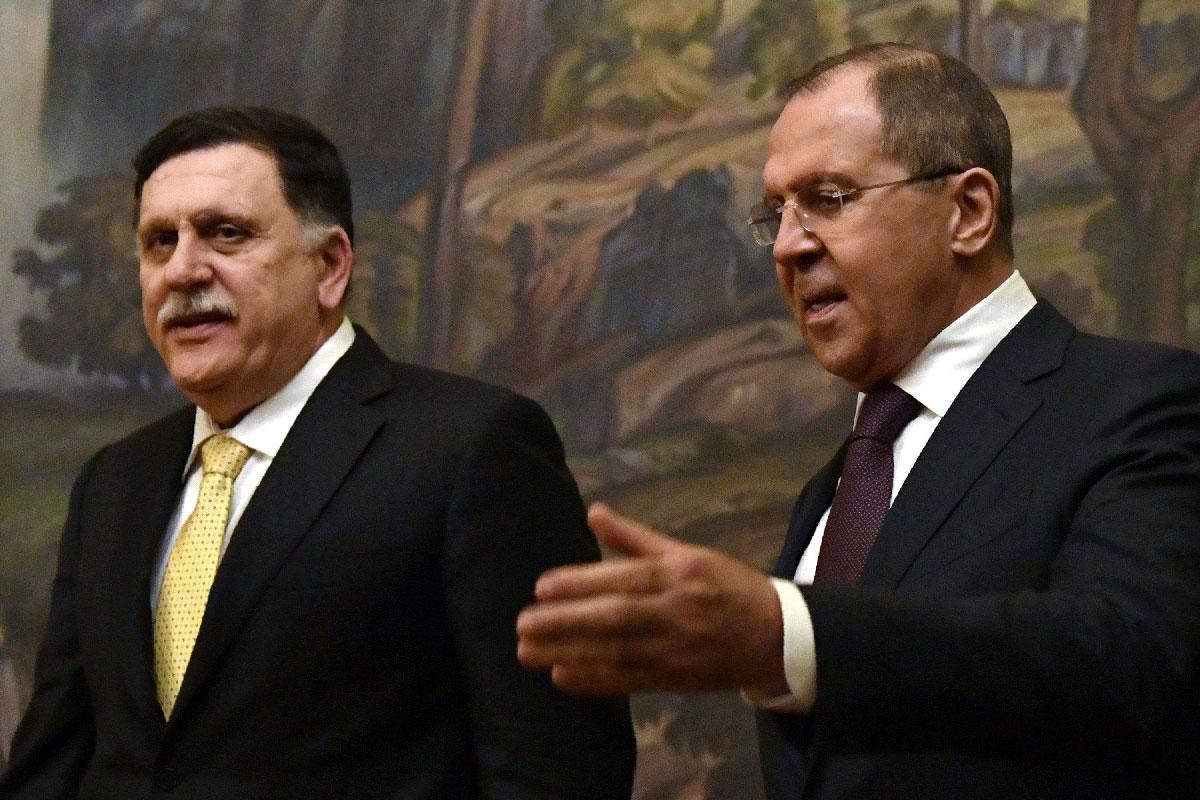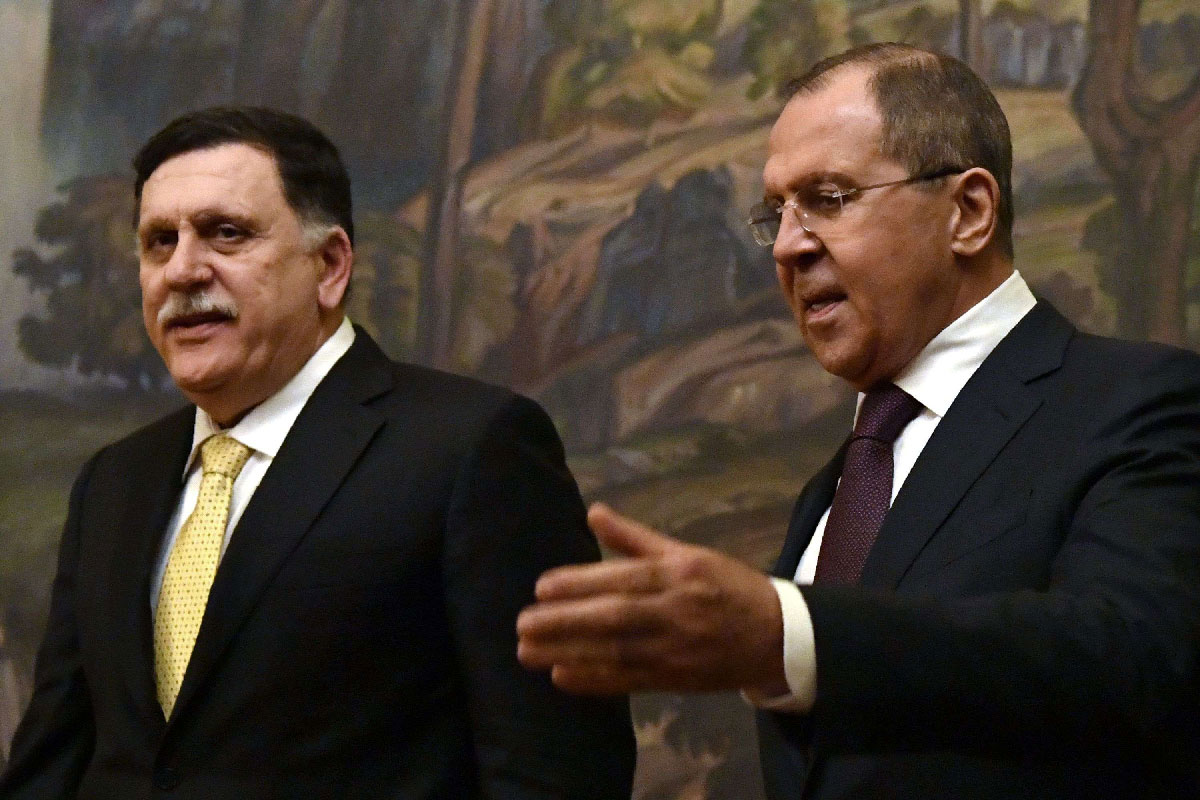Russia’s stance in Libya leans towards Haftar
TUNIS - The head of the Tripoli-based and internationally recognised Presidential Council, Fayez al-Sarraj, attended the recent Russia-Africa summit, having been invited by Russian President Vladimir Putin.
Also at the meetings, hoping to put forward a different side of events in Libya, was Abdul Hadi al-Hweij, the foreign minister of the rival, eastern-based government. He had no known official agenda, although he caught the attention of Russian media and reportedly met with representatives of other African countries.
While Sarraj was being formally welcomed by the Russians, former Russian servicemen working for the Moscow-based security company the Wagner Group were reported fighting in Tripoli alongside the Libyan National Army (LNA), which has been trying to capture the city and overthrow the Sarraj government.
While there has been no definitive proof of Russians fighting alongside the LNA — the LNA has denied it — Russian media said a number of former Russian soldiers have been killed in fighting around Tripoli.
The Wagner Group, which has been involved in operations in Syria, is known to be close to Putin and it is impossible that it would operate in Libya against his wishes. This raised questions about Moscow’s policy towards Libya.
Observers inside and outside Libya said that, despite the diplomatic necessity of publicly supporting UN policy on Libya, which means backing Sarraj, the Kremlin supports LNA Field-Marshal Khalifa Haftar.
They point to the numerous visits he and his advisers have made to Moscow for talks with Russian top military officials and politicians. They point to Russia’s refusal after the Tripoli offensive started to allow any UN Security Council resolutions or statements critical of the LNA or Haftar.
They talk of technical support the LNA is apparently receiving, such as Russian technicians repairing Russia-made military equipment and another Russian security company, RSB, conducing mine clearance in Benghazi and possibly other operations. Russian support for the east has included the printing of large sums of dinar bank notes.
Russian officials insist they maintain links with both sides of the conflict, that they recognise Sarraj and the Presidential Council because it has been endorsed by the Security Council, although not his Government of National Accord (GNA) because it has not been legitimised by the House of Representatives (HoR) and that they also talk to the eastern-based government, since it is approved by the HoR.
The policy, they say, is equidistance.
There are suggestions in Moscow that it hopes to play a mediator role in Libya but there are no signs of it attempting to do so. Hweij suggested that Moscow should take a bigger role on settling the Libyan conflict and organise a conference on it. There has been no response.
In his bid to entice the Russians, Hweij offered them the prospect of new oil and gas deals, major construction projects and new arms purchases.
Russia would certainly welcome the opportunities. It has said it wants to resume work on the $2.2 billion Sirte-Benghazi railway project. At the Russian Energy Week conference in Moscow in October Gazprom and Tatneft told Libya’s National Oil Corporation Chairman Mustafa Sanallah that they want to return to Libya. However, as with other businesses in Russia, they made it clear that it depends on security.
Sarraj has also been offering the Russians the chance of increased trade. Lev Dengov, the head of the Russian Contact Group for intra-Libyan settlement who met with Sarraj on the sidelines of the Russia-Africa conference, said a GNA contract to buy 1 million tonnes of wheat from Russia is about to be signed and discussions included money owed to Russia for military equipment during the Qaddafi era and the possibility of future military sales.
There are other suggestions explaining apparent contradictions in Moscow’s Libya policy. One is that the Russian government is divided — one side, particularly the Ministry of Foreign Affairs, wanting to maintain links with Sarraj and his government, the other led by the Defence Ministry wanting full support for Haftar.
Another is that Moscow is waiting to see who wins and a third is that the conflict in Libya serves Russia’s interests because it complicates US policy in the region and destabilises Europe, setting France against Italy.
Haftar continues to shun the UN Support Mission in Libya and the LNA is furious with UN Special Envoy Ghassan Salame for saying there is no GNA military equipment at Mitiga airport and for announcing the opening of its own terminal there to deter further LNA attacks.
Meanwhile moves are taking place in Washington, independent of the White House. Legislation was introduced to the US House of Representatives aimed at targeting anyone who supports Russian military intervention in Libya.
There is no guarantee that the Libya Stabilisation Act will pass through the US Congress and there is still a long way to go procedurally.
Michel Cousins is the editor-in-chief of the Libya Herald.
This article was originally published in The Arab Weekly.




